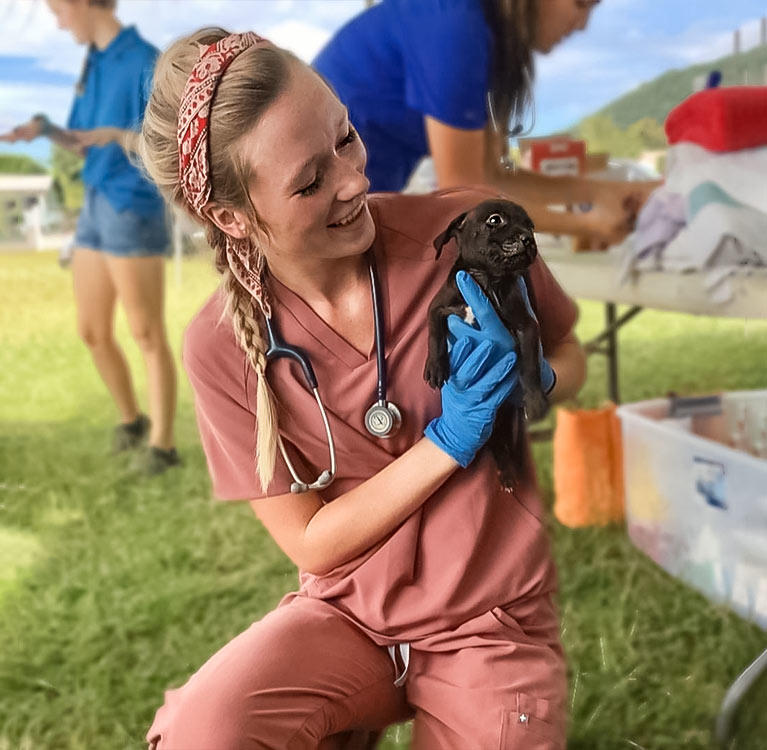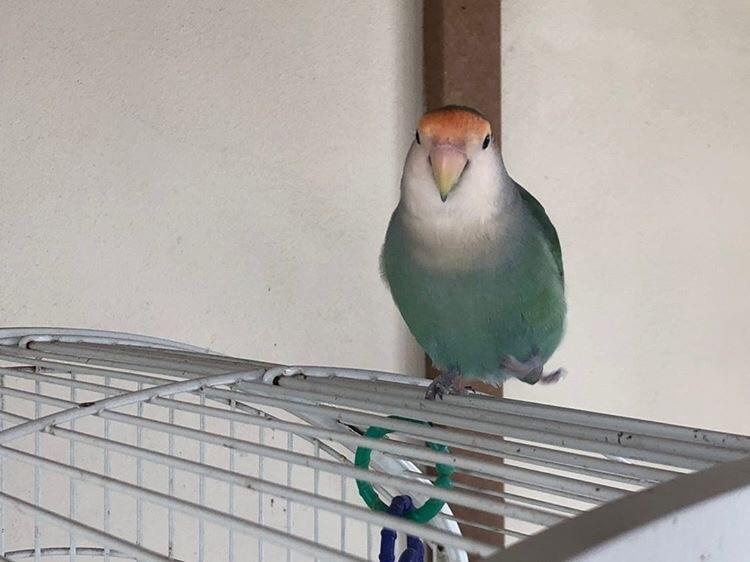Earning a Doctor of Veterinary Medicine and Master of Science by Research (DVM/MSc) through a dual degree program allows you to take your expertise and knowledge beyond the clinical skills acquired through just a DVM program. A DVM/MSc program gives you the chance to focus on current and novel research topics related to animal health and welfare. It can prepare you to improve global wellness, conduct independent research, and even help advance the future of veterinary medicine.
What Is a DVM/MSc Program?
A DVM/MSc dual degree program allows you to earn a master’s degree (MSc) and Doctor of Veterinary Medicine (DVM) degree simultaneously. Guided by a supervisory team of experts in the field, you’ll research current issues and trends within veterinary medicine during the master’s portion of the program. The invaluable insight you gain can help shape the trajectory of your career path and deepen your appreciation for the knowledge and skills you’ll learn during the DVM portion of your program. It will expand your knowledge of research in your chosen field and could help you get into the residency program of your choice.
The Ross University School of Veterinary Medicine MSc by Research program allows you to explore current problems in veterinary medicine. You’ll research a topic of your choice and share your findings in a thesis.
This extensive research can provide you with insight into current concerns and ways you can help contribute both during and after your program. Additionally, earning a veterinary master’s degree can prepare you to work alongside veterinarians, animal trainers, and even instructors.
How to Apply to Our DVM/MSc Program
At Ross Vet, if you’re planning to apply to our DVM/MSc dual degree program, you must first meet our application requirements. Although submitting a Graduate Record Examination (GRE) score is optional, we encourage you to submit your score if you’ve already taken the exam.
What to Expect From a DVM/MSc Program
DVM/MSc dual degree programs combine both master’s-level coursework and research and Doctor of Veterinary Medicine-level coursework—which can be intense. Schools may offer various program structures to make completing these programs more attainable. While some schools may separate master’s coursework from doctoral coursework by semesters, others cover both simultaneously.
At Ross Vet, our dual degree program is available in two pathways—integrated or intercalated—to give you more flexibility over when you complete your master’s degree.
DVM/MSc Integrated Pathway
Our integrated option spans 11 semesters and spreads the master’s and DVM degree requirements across the first eight semesters. The program is designed with some flexibility around your DVM studies and also depending on your topic of research, but typically follows the schedule outlined below.
Semesters One Through Three
You’ll spend the first three semesters completing preclinical coursework while preparing for your research project. During this time, you’ll begin by conducting a literature review on a research topic related to one of our Research Centers. Once it is approved, you’ll undergo research training to prepare to become fully immersed in researching your project.
Semester Four
You’ll spend the fourth semester researching, collecting and analyzing data, and preparing to write your thesis. You’re expected to oversee your own project but will receive expert guidance from your supervisory team of faculty and staff in our Research Centers.
Semesters Five Through Eight
Over these semesters, you’ll write your thesis while completing preclinical coursework in your veterinary program. In the eighth semester, you’ll complete and submit your research project as a thesis.
Semesters Nine Through 11
During these three semesters, you can focus on completing clinicals and earning your DVM degree.
While weaving research throughout the entire program can allow more time to finalize your thesis, you may find it difficult to juggle the demands of both degrees simultaneously. Our intercalated option allows you to focus on one degree at a time to create a more immersive experience.
DVM/MSc Intercalated Pathway
Our intercalated option spans 13 semesters but keeps DVM studies and MSc studies separate. Schedules may be modified depending on your needs and the needs of your research project.
Semesters One Through Three
You’ll spend the first three semesters focused solely on the preclinical studies in your DVM program.
Semesters Four Through Six
You’ll fully immerse yourself in your research project and write your thesis. Once you submit your thesis at the end of semester six, you’ll have completed all of the requirements for the master’s portion of your dual degree.
Semesters Seven Through Ten
You’ll complete the remaining preclinical portion of your DVM program.
Semesters Eleven Through 13
You’ll complete the clinical requirements of your DVM program to earn your doctoral degree.
Is a DVM/MSc Dual Degree Program Worth It?
Earning a master’s degree alongside a veterinary doctorate can prepare you for a range of careers in academia, clinical medicine, research, and more. Having both degrees can demonstrate your expertise in a specific area of veterinary medicine to potential employers. Completing a DVM/MSc dual degree program also allows you to further your research skills and potentially publish your findings in a peer-reviewed journal.
Although a DVM/MSc dual degree program can be time-consuming, Ross Vet offers a choice of pathways to make finishing your program more attainable.
Interested in learning more about our DVM/MSc dual degree program? Visit our dual degree page for a breakdown of our intercalated and integrated offerings or submit this form to request more information!







